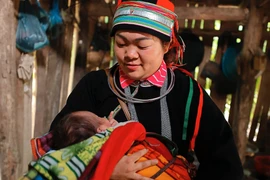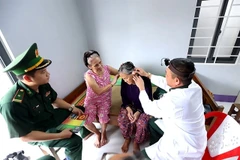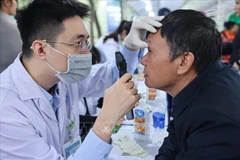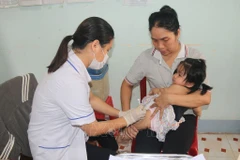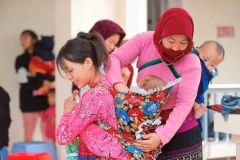Hanoi (VNA) – Vietnam has made very impressive progress on safeguarding the lives of the youngest members of society and their mothers, said WHO Representative in Vietnam Dr Angela Pratt.
Pratt credited this progress to advancements in health care, especially at the grassroots level, alongside widespread vaccination, and better nutrition, water and sanitation. Strong government leadership, the Ministry of Health’s strategic guidance, and the tireless work of healthcare professionals, supported by relevant agencies and international partners, have driven these gains.
In recent years, WHO has worked closely with Vietnam to build and roll out national policies and technical guidelines on maternal, newborn, and child health. This includes assessing care quality, providing guidance on continuous improvement strategies, and promoting early essential newborn care - a set of simple, cost-effective interventions that have saved countless newborn lives.
Despite these achievements, significant disparities persist between urban and remote, disadvantaged areas. Mothers and newborns in these remote regions struggle to access quality healthcare services, leading to higher death rates compared to the national average. Vietnam’s maternal mortality rate stands at 48 deaths per 100,000 live births, higher than the WHO Western Pacific Region’s average of 35.
To bridge this gap, WHO urged Vietnam to sustain investments in expanding access to quality care for all mothers and newborns, particularly in remote and disadvantaged areas.
Vietnam needs to improve the quality of care by providing continuous training and upskilling for healthcare workers, establishing quality monitoring mechanisms, and ensuring uninterrupted access to clean water, sanitation, soap, disposable wipes or hand dryers, cleaning supplies, as well as essential medicines and medical supplies, she said.
“Investing in mother and child health is not just about survival; it is about ensuring a bright and hopeful future for women and their children, and the nation as a whole”, she added.
To ensure safe pregnancies and healthy newborns, WHO recommended that women seek professional healthcare immediately upon confirming pregnancy. Regular check-ups enable monitoring of maternal and fetal health and early detection of complications. Pregnant women are advised to maintain healthy lifestyles, avoid alcohol and secondhand smoke, adhere to vaccination schedules, manage any pre-existing conditions, and seek medical care if any concerns arise
On April 8, the WHO called for intensified global efforts to ensure that all mothers and newborns receive the care they deserve. New figures released by WHO show a significant reduction in maternal and newborn deaths in Vietnam over the past decades. Maternal deaths have nearly halved, from 88 per 100,000 live births in 2000 to 48 in 2023. Newborn survival rates have also improved, with infant deaths in the first four weeks of life decreasing from 15 per 1,000 live births in 2000 to 10 in 2023.
Reflecting on this year’s World Health Day theme, “Healthy Beginnings, Hopeful Futures,” Pratt underscored the critical importance of prioritising maternal and newborn health to foster thriving families, communities, and economies, paving the way for a prosperous future for Vietnam./.

